Disrespect in relationships can be hard to spot, but it's important to know the signs. These can range from ignoring your boundaries to making you the target of jokes in public.
This article will cover eight key indicators that show disrespect in a relationship. Recognizing these signs is essential for understanding what's wrong and finding a way to fix it.
Let's look at what to watch out for.
Key Takeaways
- Ignoring or testing partner's boundaries is a clear sign of disrespect.
- Constant criticism can significantly damage a partner's self-esteem and confidence.
- Public embarrassment, including social media shaming, deeply harms trust and intimacy.
- Dishonesty, through lies or omission, erodes the foundational trust of a relationship.
Ignoring Boundaries
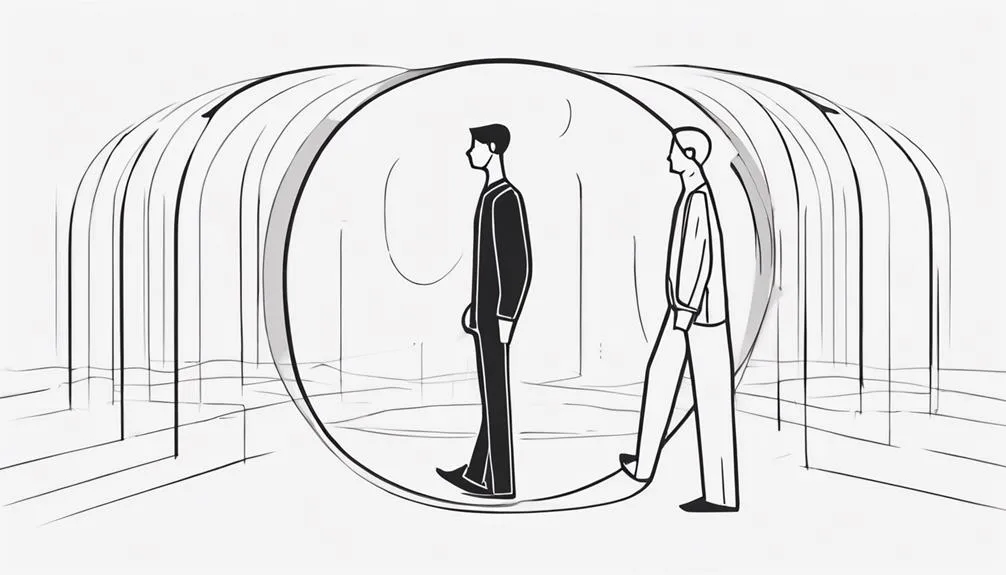
Ignoring your partner's boundaries is a clear sign of disrespect in a relationship. When you start boundary testing, it's as if you're saying their needs and comfort don't matter to you.
It's important to understand that each person has their own set of boundaries, and respecting these is vital for a healthy relationship. Making unilateral decisions is another way you might disrespect your partner's boundaries. Deciding on things that affect both of you, without considering their opinion or feelings, undermines their autonomy.
It's not just about the big decisions either; it's the small choices you make every day that can either respect or disregard their boundaries. Always remember, respecting your partner's boundaries is fundamental to showing them love and respect.
Constant Criticism
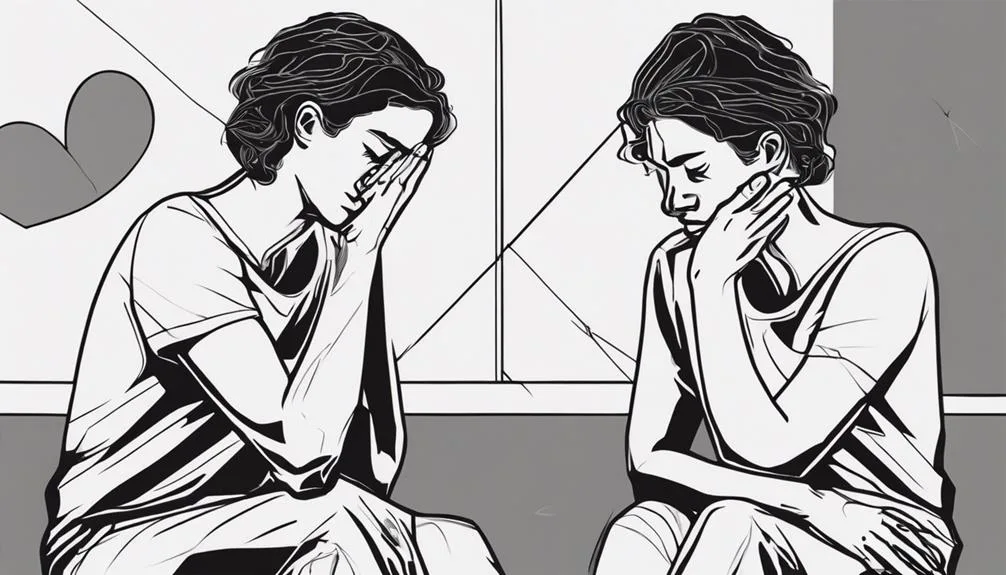
Another sign of disrespect in a relationship is when you're constantly criticizing your partner, subtly indicating that they're never good enough. This behavior can deeply affect your partner's self-esteem, making them feel undervalued and insufficient. Unlike constructive feedback, which is aimed at growth and improvement, constant criticism lacks any positive intention and can erode the foundation of your relationship.
Consider the impact of your words:
- It undermines your partner's confidence.
- It creates a hostile environment, void of emotional safety.
- It discourages open communication, as your partner may fear further criticism.
- It shifts the focus from problem-solving to fault-finding, hindering any constructive feedback process.
Public Embarrassment
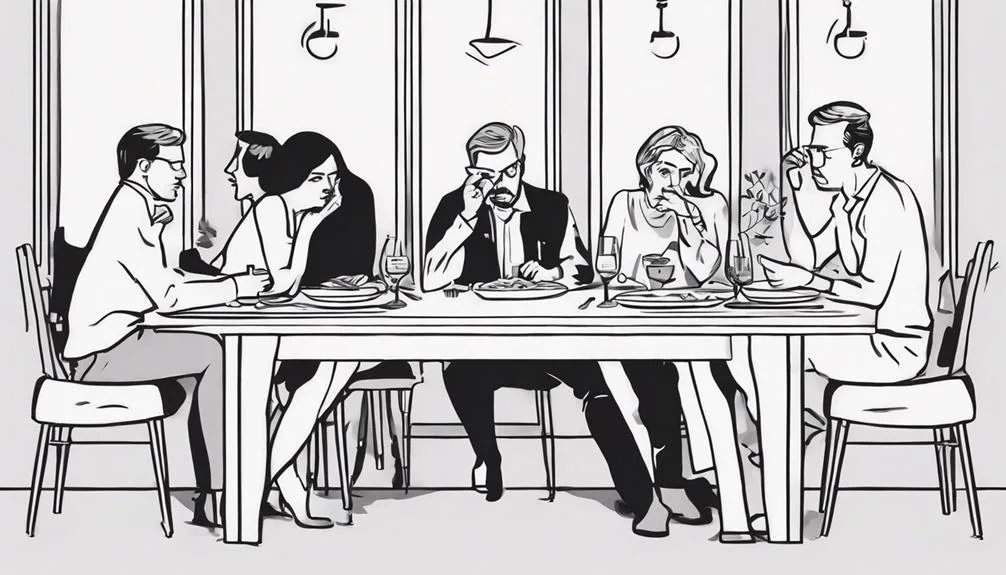
Subjecting your partner to public embarrassment is a profound sign of disrespect that can severely damage the trust and intimacy in your relationship. When you laugh at them in front of others or share private matters without consent, especially through social media shaming, you're not just being playful; you're undermining their dignity. Inappropriate jokes at their expense, particularly in social settings, can leave deep emotional scars.
| Type of Embarrassment | Example | Impact |
|---|---|---|
| Social Media Shaming | Posting failures | Humiliation |
| Inappropriate Jokes | Mocking abilities | Decreased Self-esteem |
| Public Outings | Criticizing in public | Anxiety |
| Sharing Private Matters | Revealing secrets | Loss of Trust |
Avoid such behaviors to foster a relationship built on respect and mutual understanding.
Frequent Interruptions

While public embarrassment can deeply damage a relationship, frequent interruptions during conversations also show a lack of respect and consideration. This behavior not only disrupts the flow of communication but can also lead to a breakdown in understanding between partners. Here's how it plays out:
- It signals an important interest in what you're saying.
- It creates a power dynamic where one partner dominates the conversation.
- It contributes to a communication breakdown, preventing effective problem-solving.
- It fosters resentment and undermines the mutual respect necessary for a healthy relationship.
Interrupting frequently doesn't just interrupt a conversation; it disrupts the very foundation of trust and respect. Recognizing this pattern is essential for addressing the underlying issues and restoring balance in your relationship.
Dishonesty
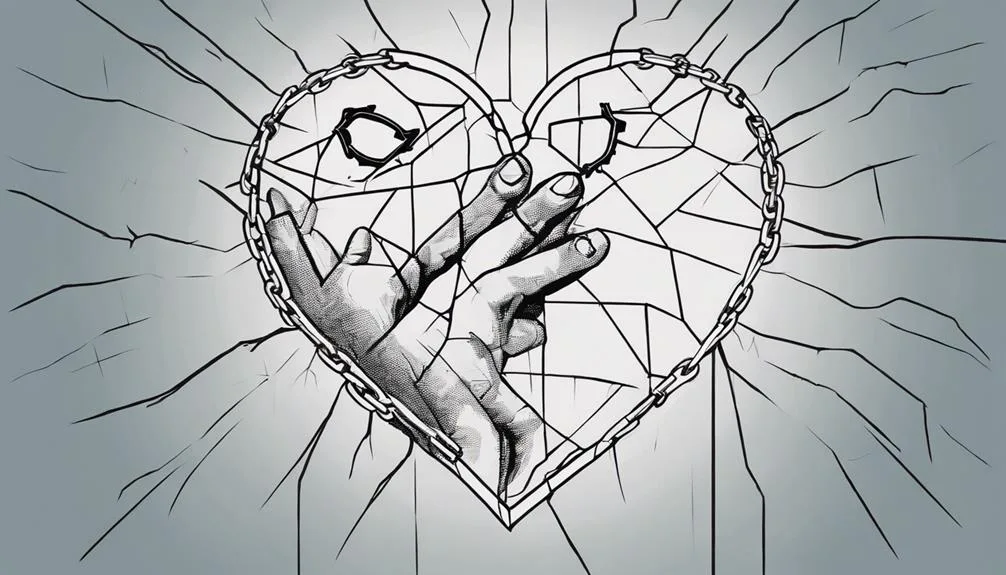
Dishonesty, whether through lies of omission or commission, erodes the trust foundation critical for a strong relationship. When you're not honest, it's not just about the lie itself but what it signifies. It shows a lack of respect for your partner and the bond you share. Secret keeping and fabricated stories might seem like a temporary fix, but they're signs you're moving away from a healthy, respectful relationship.
| Behavior | Impact on Relationship | Example |
|---|---|---|
| Secret keeping | Erodes trust | Hiding significant debts |
| Fabricated stories | Creates doubt | Lying about where you were |
| Half-truths | Weakens connection | Leaving out important details |
Being transparent, on the other hand, strengthens your bond. It's about valuing your partner enough to be honest, even when it's hard.
Dismissive Attitudes
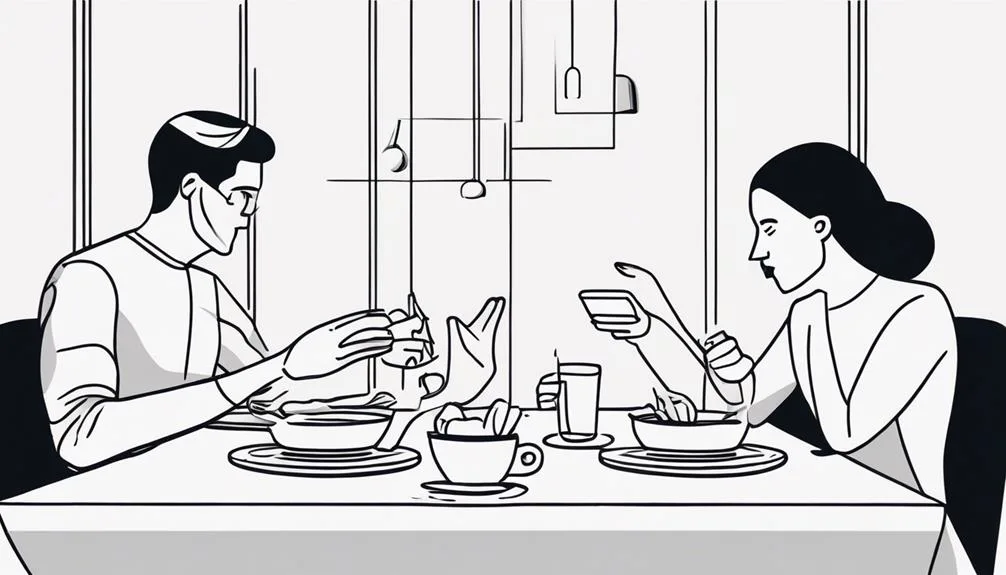
Dismissing your partner's feelings or opinions can severely undermine the mutual respect that's foundational to a healthy relationship. When you're dismissive, you're not just ignoring your partner; you're sending a message that their thoughts and emotions aren't valuable. This can manifest in several harmful ways, including:
- Sarcastic comments that belittle your partner's ideas or concerns.
- Eye rolling, signaling that you find their input unworthy of serious consideration.
- Interrupting them mid-sentence, showing a lack of interest in what they've to say.
- Changing the subject abruptly, indicating their thoughts aren't worth your time.
These actions hurt your partner and damage the trust and respect that are essential for a loving, supportive relationship.
Lack of Support
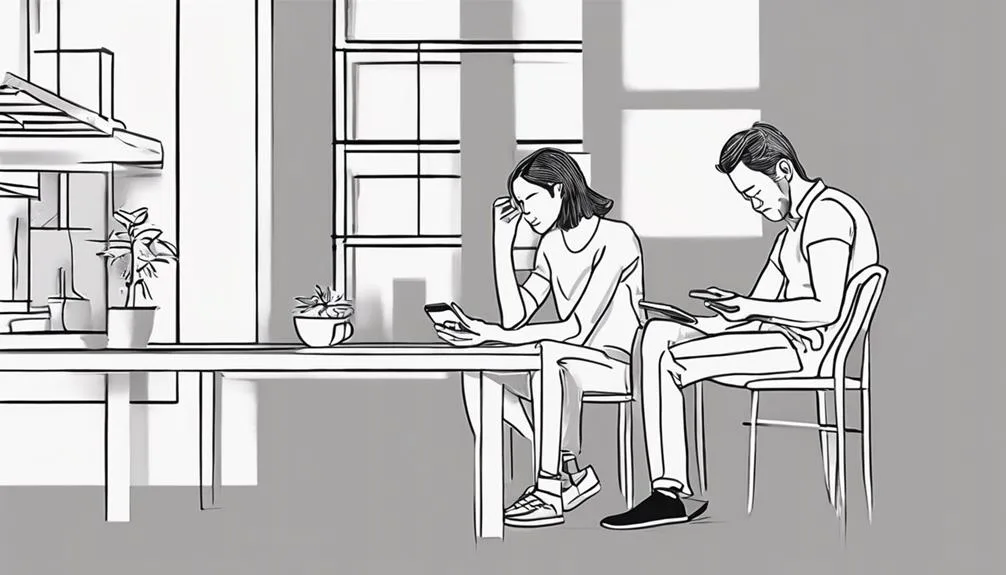
Failing to back your partner in their endeavors or emotional needs chips away at the foundation of trust and companionship in a relationship. When you're not there for your significant other, it isn't just about missing out on events; it's a form of emotional neglect that signals a deeper communication breakdown.
| Signs of Lack of Support | Possible Consequences |
|---|---|
| Not listening to their day-to-day concerns | Increases feeling of loneliness |
| Dismissing their achievements or goals | Lowers self-esteem |
| Ignoring their requests for help or advice | Creates emotional distance |
| Being indifferent to their emotional expressions | Leads to a breakdown in communication |
Privacy Invasion
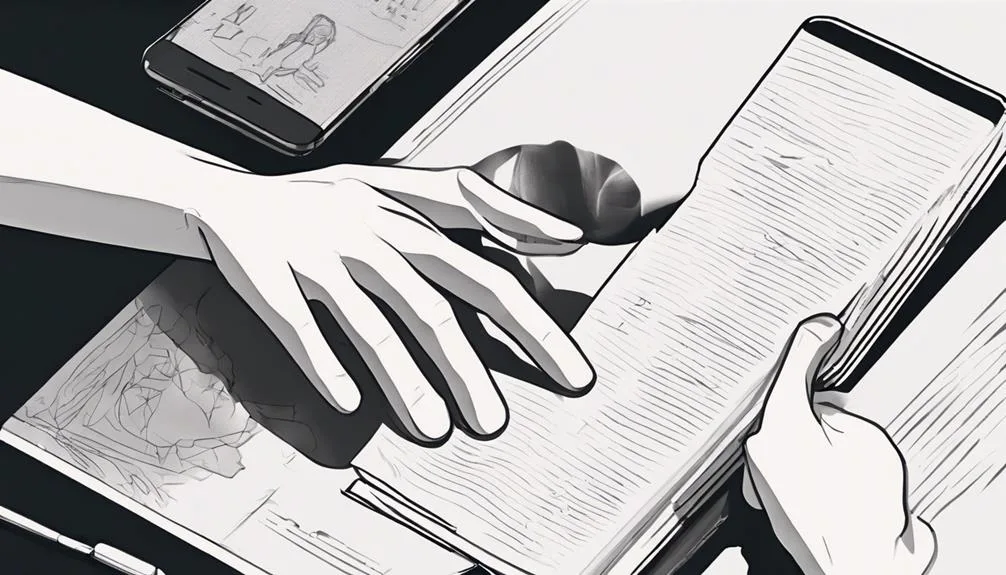
While lack of support can erode the emotional foundation of a relationship, invading your partner's privacy further undermines trust and respect. Privacy invasion isn't just about going through their phone without permission; it's a broader issue that encompasses various disrespectful behaviors. Here's a closer look at some key indicators:
- Social media snooping, such as checking their messages or friend lists without consent.
- Installing secret surveillance apps on their personal devices to monitor their movements or communications.
- Eavesdropping on phone conversations or insisting on knowing the details of private conversations.
- Demanding passwords to personal accounts, not out of necessity, but to keep tabs on them.
These actions not only breach trust but also signal a lack of respect, a foundational element for any healthy relationship.
Conclusion
Recognizing the red flags of disrespect, such as boundary violations, harsh criticism, public embarrassment, interruptions, dishonesty, emotional dismissal, lack of support, and privacy invasions, is vital in any relationship.
You're entitled to kindness and respect, and settling for less undermines your worth. These signs serve as early warnings, steering you away from prolonged harm and guiding you towards a relationship grounded in mutual respect.
What steps will you take to ensure your relationships are built on this foundational principle?

